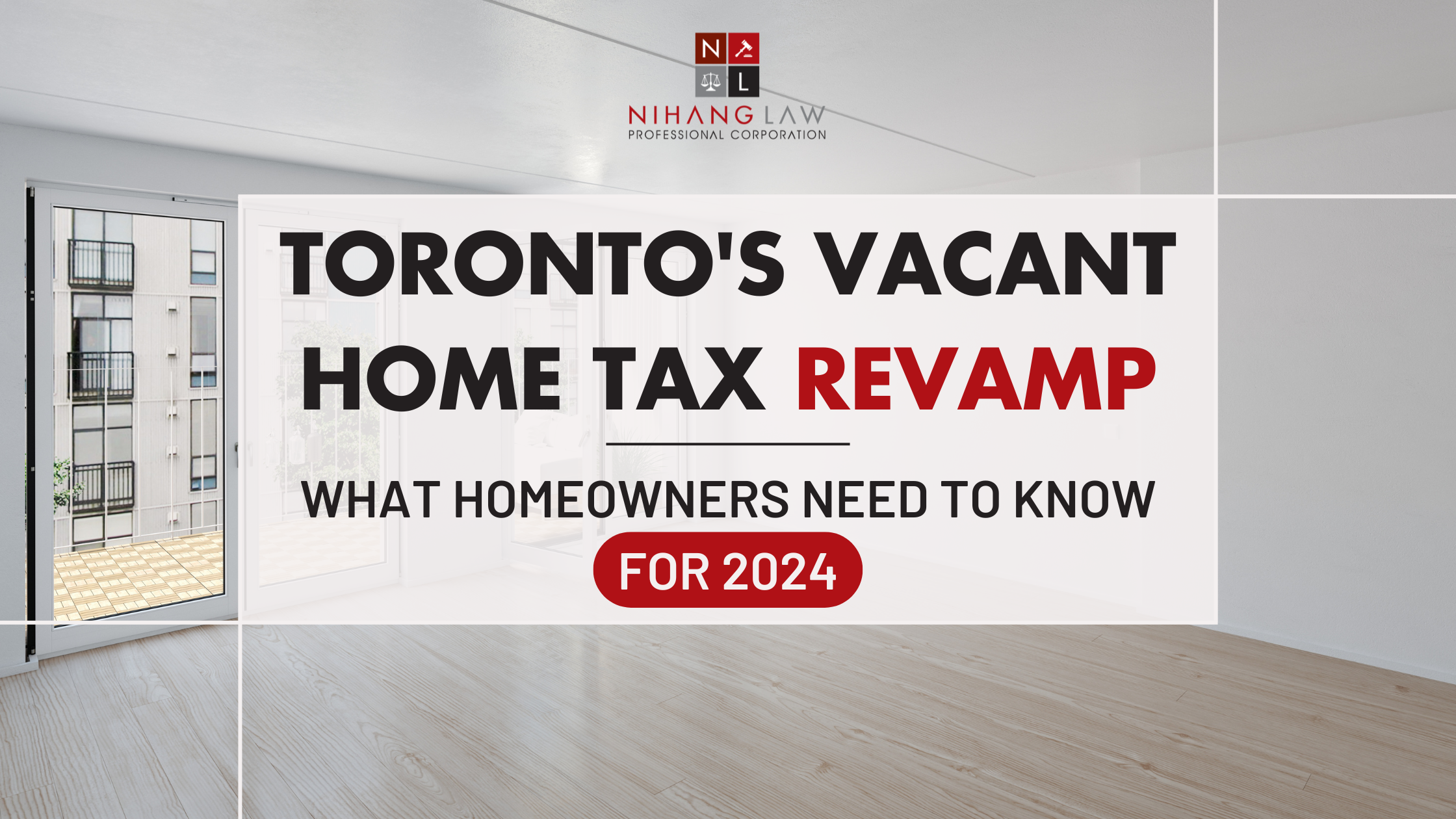
26th September 2024BY Nihang Law
What Are The Changes to Toronto’s Revamped Vacant Home Tax Project?
It’s safe to say not everybody was elated about the introduction of the Toronto Vacant Home Tax. The program received a flurry of complaints following last year’s rollout.
To address the issue, Toronto plans to instill a “complete redesign” of the vacant home tax program for the 2024 tax season to make the process and experience much easier for homeowners.
“We didn’t really do a good enough job communicating the need for an annual declaration,” said City of Toronto CFO and Treasurer Stephen Conforti, via CBC news.
Proposed Changes to Toronto Vacant Home Tax Project
The city will roll out a more aggressive communications campaign where they will reach out and emphasize to people that they need to make the declaration and provide guidance.
A customer service team will also be available to help answer questions. Taxpayers can even make their declarations on the call.
In addition, property owners can still submit their declarations in person at Tax and Utility counters in city halls and civic centres.
The City of Toronto has also revamped the online portal, making it more user-friendly for the public. It will reportedly open on November 1.
Taxpayers will also have more time to declare their taxes – from November 1, 2024, to April 30, 2025. VHT tax bills will also now be issued on June 1, or the next business day if June 1 falls on the weekend.
Moreover, payment due dates will shift from May 15, June 15, and July 15 to September 15, October 15, and November 15.
Why Toronto Introduced the Vacant Home Tax
The city introduced the vacant home tax in 2021 as part of Toronto’s efforts to address the housing crisis by incentivizing property owners to either sell their property or rent it out.
“We are going to do everything we can to fix this because we do need those homes,” said Toronto Budget Chief and Councillor Shelley Carroll. “People will know that they are helping the city of Toronto put a roof over people’s heads just by doing this one thing every year at the end of the year.”
There are currently over 10,000 vacant homes in Toronto.
A property is deemed “vacant” if it has not been used as the principal residence of the owner or any permitted occupants or was not occupied for at least months during the previous calendar year. Likewise, a property is also considered vacant if the owner was unable to submit a declaration of occupancy status or any required supporting documentation.
Exemptions to the Vacant Home Tax
A property may be exempt from the Vacant Home Tax if it meets one of the following conditions:
- Death of the Owner: The property was vacant for six months or more due to the owner’s death. This exemption can apply for up to three years. A death certificate will be required as supporting documentation.
- Repairs or Renovations: The property is undergoing repairs or renovations that are preventing occupancy for at least six months. The principal owner must provide a description of the project, along with other documents such as work orders, contractor receipts, and building permits.
- Principal Owner is in Care: The principal resident is in long-term care or hospital for at least six months, with the property previously being their principal residence.
- Transfer of Legal Ownership: The property was sold with a 100% ownership transfer in the taxation year.
- Occupancy for full-time employment: The property is vacant because the owner, whose principal residence is outside the Greater Toronto Area, needs it for employment for at least six months.
- Court Order: A court order prohibits occupancy for at least six months.
- Vacant New Inventory: Developers can claim this exemption for new residential units that remain vacant and are for sale for up to two years.
Get In Touch with Nihang Law
If you need guidance navigating Toronto’s Vacant Home Tax project, are planning to buy or sell your property, or have property-related concerns, Nihang Law’s real estate lawyers are here to help. Contact Nihang Law today at (416) 321-0353 or email rematters@nihanglaw.ca to schedule your consultation.
Thank you for reading this post, don't forget to subscribe!



